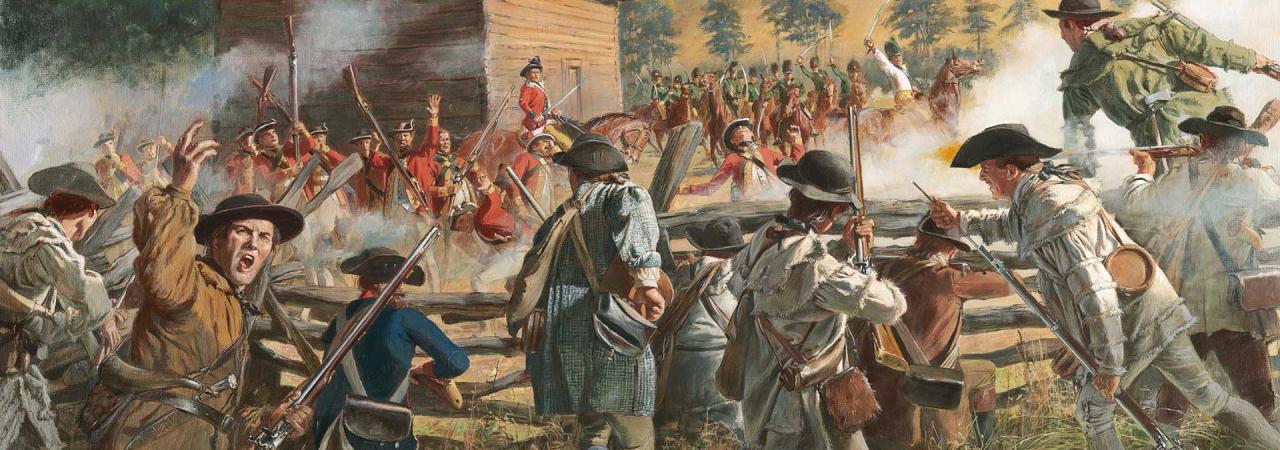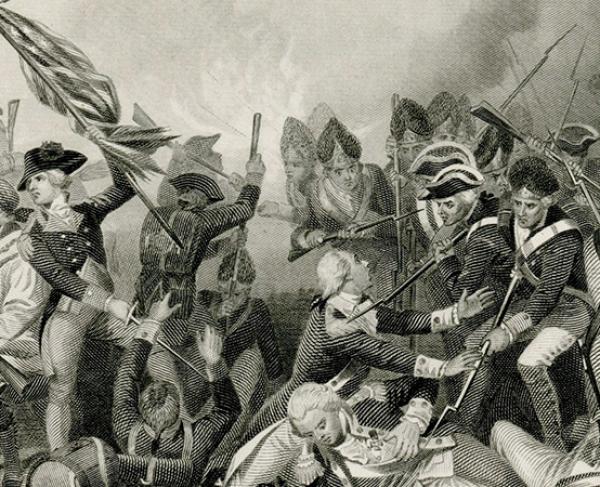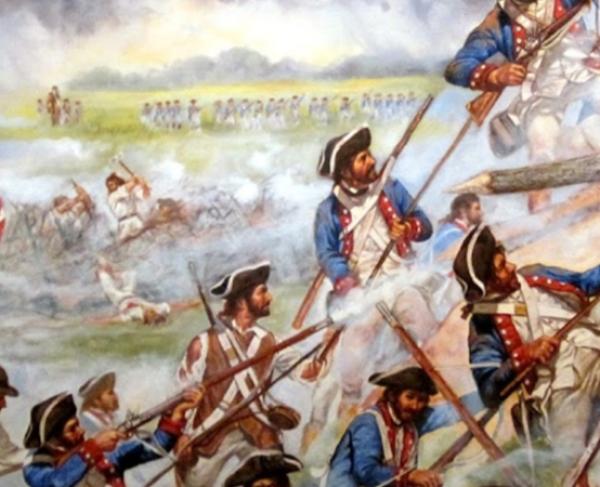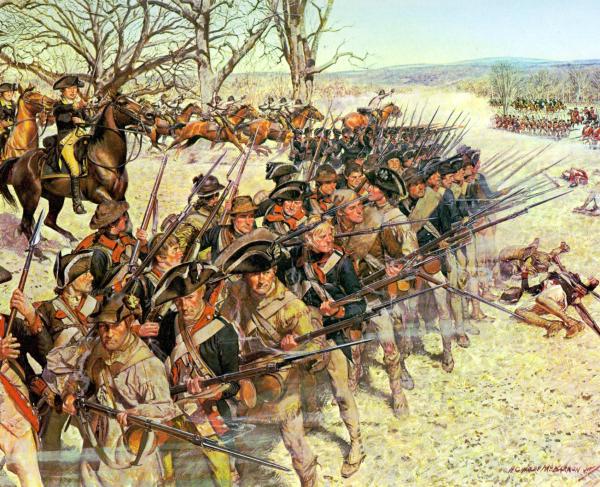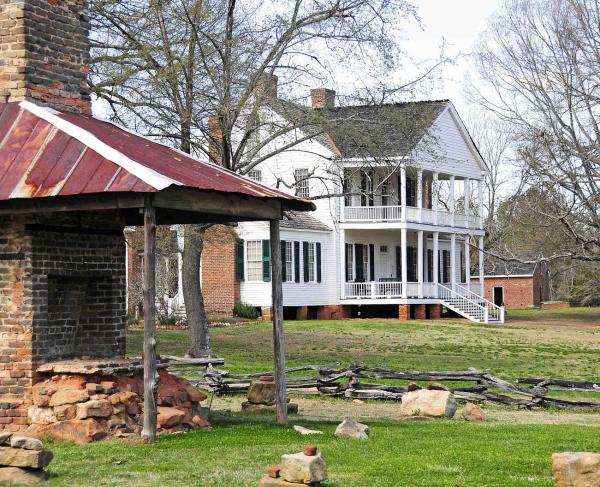South Carolina | Jul 12, 1780
By May 1780, British forces controlled four important towns in South Carolina: Camden, Cheraw, Georgetown, and Ninety-Six—and the city of Charleston. That June, a British fortified outpost was established near the North Carolina border along the Catawba River and Lieutenant Colonel George Turnbull was placed in charge. Turnbull assigned Captain Christian Huck to persuade patriot leaders and sympathizers in the area to join the British forces or be arrested.
Huck was a German-born lawyer from Philadelphia and nicknamed “the swearing captain.” He had a quick temper and a general dislike for Presbyterians. His favorite pastime was terrorizing the local rebel population. While on patrol, he and his troops killed an unarmed boy who was reading the Bible and burned the library of the Presbyterian Rev. John Simpson. On June 11, Huck destroyed the Fishing Creek Presbyterian Meeting House in current day Chester County where Patriot sympathizers usually met and a week later, he burned William Hill’s ironworks for similar reasons.
In July, Turnbull heard rumors that local Patriot militia leaders, Colonel William Bratton and Captain John McClure, were returning to their homesteads to monitor the wheat harvest and enlist new recruits. Turnbull assigned Huck to capture these leaders, and on July 10th Huck set off with 120 men in pursuit of the Patriot forces.
Huck arrived at McClure’s homestead the morning of July 11th. McClure was not there. Huck, angry at the absence, terrorized McClure’s wife, set fire to their house, and captured McClure’s younger brother James and his brother-in-law Edward Martin. Both were sentenced to be hanged the next morning for aiding the rebels. Huck arrested three more of McClure’s and Bratton’s neighbors under the same reasoning later that day.
Huck continued to Bratton’s homestead ten miles north. Neighbors warned Martha Robertson Bratton, William Bratton’s wife, that Huck was on his way. She dispatched Watt, a family slave, with a note for her husband to warn him about Huck’s approach. Before Huck could arrive, Loyalist New York Volunteers and a separate Tory militia came to question her. When she wouldn’t reveal her husband’s whereabouts, a Tory militiaman threatened her with a reaping hook that had been hanging on her porch. A New York Volunteer intervened and separated her from the attacker.
When Huck arrived at the Homestead, Martha continued to deny knowledge of her husband’s whereabouts. Huck forced her to make dinner for the officers and then locked her in the attic with her children. After supper, Huck and his soldiers retired to the nearby Williamson plantation for the night.
Watt found William Bratton and gave him Martha’s note. Bratton set out with some 140 militiamen to attack the British. After locating the troops at Williamson’s plantation, the men split into two groups and attacked from opposing sides of the British camp before sunrise. Soldiers used the surrounding fences as cover and to stabilize their muskets for better accuracy. The fences, too, served to pen up the Tories. Colonel Matthew Floyd and a fraction of his Loyalist men fled into the surrounding forest and escaped. Colonel James Ferguson was shot and killed while Lieutenant John Adamson of the New York Volunteers fell from his horse and was wounded. After hearing gunshots, Captain Huck emerged from the plantation house and mounted his horse. While trying to advance with his saber in hand, he was mortally wounded, shot through the head. None of the prisoners arrested the day before were killed in the altercation.
With the death of the terrorizing Captain Huck, South Carolina’s support and morale for the Patriot cause grew.
Huck's Defeat: Featured Resources
All battles of the Southern Theater 1780 - 1783 Campaign
Related Battles
140
120
1
95
